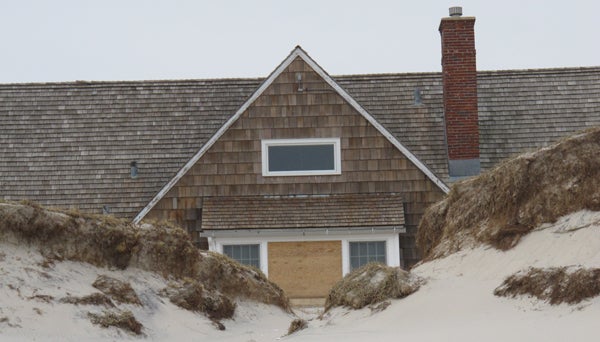New Jersey Supreme Court to issue decision in much-watched dune case

Photographed here is an exterior view the governor's beach house at New Jersey's Island Beach State Park, in Island Beach State Park, N.J. The house came through Superstorm Sandy with minimal damage due to a robust dune system guarding it. (Wayne Parry/AP Photo, file)
A decision is expected Monday from the New Jersey Supreme Court in a case that could have wide-reaching implications for the cost of building dunes along the shore.
When the Borough of Harvey Cedars wanted to build a 22-foot high dune along its shoreline, it needed the permission from all waterfront homeowners to add sand to land they owned.
Some homeowners agreed, but others, including Harvey and Phyllis Karan, thought they should be compensated for the use of their land and any decreases in property value that the dunes caused by blocking views of the waves.
The borough and the Karans went to court and a jury awarded the couple $375,000 which the borough appealed all the way to the New Jersey Supreme Court.
The court is expected to decide whether the Karans get a special benefit from the dune, more than just the general protection it offers everyone in the area. If so, their compensation amount could be decreased. But if the court sides with the Karans and the price they were awarded becomes a model for compensating other homeowners, the cost of future dune construction could become prohibitively expensive.
Towns need the cooperation of all water-front property owners before building a dune to make it effective. Having to pay a high price to those who resist, like the Karans, could stall an entire project. Beach replenishment projects and protective dunes have become the main tenet of the state’s plans to protect the shore from future storms in the wake of Hurricane Sandy.
WHYY is your source for fact-based, in-depth journalism and information. As a nonprofit organization, we rely on financial support from readers like you. Please give today.




